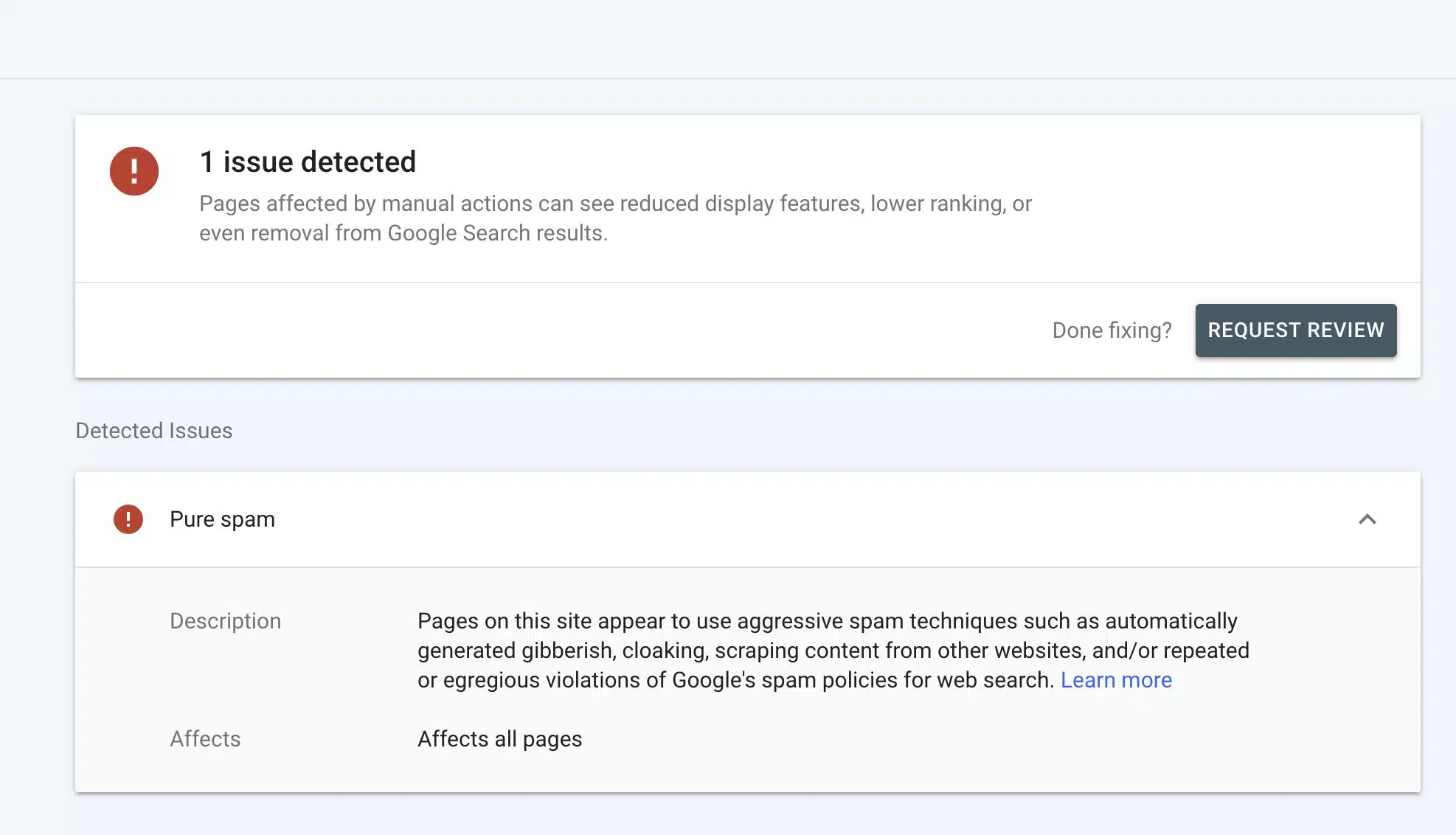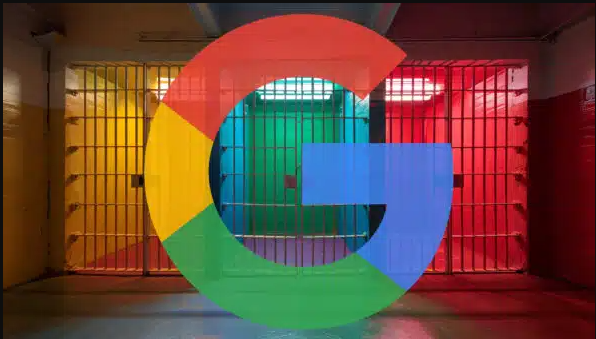Check your properties within Google Search Console for manual actions to see if your were impacted.
The day after Google released its new search spam policies, including the March 2024 spam and core updates, Google began penalizing websites that the search company felt violated those spam policies.
The result of these search penalties was that some sites were completely or partially de-listed from Google’s search results, and all or part of their search traffic was wiped out.
These sites also received a notice of these penalties in the manual actions section within Google Search Console.
Manual actions. Google explains that “Google issues a manual action against a site when a human reviewer at Google has determined that pages on the site are not compliant with Google’s spam policies. Most manual actions address attempts to manipulate our search index. Most issues reported here will result in pages or sites being ranked lower or omitted from search results without any visual indication to the user.”
Examples. Google has issued a number of pure spam manual actions. Those pure spam actions are “pages on this site appear to use aggressive spam techniques such as automatically generated gibberish, cloaking, scraping content from other websites, and/or repeated or egregious violations of Google’s spam policies for web search,” according to the violation notices.
Here is a screenshot of one of the many we saw posted across the web:

Some are also reporting getting manual actions for “misleading content.” Google says in that violation, “Your site appears to violate our misleading content policy and misleads users into engaging with it by promising details which are not reflected in the content.”
I posted dozens of examples of these complaints on the Search Engine Roundtable.
Manual actions vs algorithmic updates. It is important to note that manual actions are done by humans at Google. Humans review your site and determines the site is in violation of a spam policy. Google may automated some of the processes around finding these violations but they are considered “manual” by Google.
Algorithm updates, like the March 2024 core update or spam update would not get notified of a ranking decline through Google Search Console’s manual action viewer. Algorithmic updates are automated and Google does not not notify the site owner when a site is negatively (or positively) impacted by an algorithm update. Of course, a site can both be impacted by a manual action and an algorithm update.
How to fix your site after a manual action. If you get a manual action, that means you can take steps to fix the violation and remove the manual action. Here are the steps you can take according to Google:
- Expand the manual action description panel on the report for more information.
- See which pages are affected.
- See the type and short description of the issue, and follow the “Learn more” link to see detailed information and steps to fix the issue. (You can find the detailed information for each action below on this page).
- Fix the issue on all affected pages. Fixing the issue on just some pages will not earn you a partial return to search results. If you have multiple manual actions on your site, read about and fix all of them.
- Be sure that Google can reach your pages; affected pages should not require a login, be behind a paywall, or be blocked by robots.txt or a noindex directive. You can test accessibility by using the URL Inspection tool.
- When all issues listed in the report are fixed in all pages, select Request Review in this report. In your reconsideration request, describe your fixes. A good request does three things:
- Explains the exact quality issue on your site.
- Describes the steps you’ve taken to fix the issue.
- Documents the outcome of your efforts.
- Reconsideration reviews can take some time (see below). You will be informed of progress by email. You will get a review confirmation message when you send your request, to inform you that the review is in progress; don’t resubmit your request before you get a final decision on your outstanding request.
How long does it take. Google says “most reconsideration reviews can take several days or weeks, although in some cases, such as link-related reconsideration requests, it may take longer than usual to review your request.”
Google added that you will be informed by email when we receive your request, so you’ll know it is active. You will also receive an email when the review is complete.
Why we care. We recommend you check your site’s manual action viewer to see if you have any manual actions. If so, you might notice a huge drop in traffic and even notice your site was delisted from Google Search.
If you were hit, you need to decide what actions to take to recover and then go through the reconsideration request process.
Keep in mind, the core and spam updates are different from manual actions and those will take 2-4 weeks to roll out fully.

